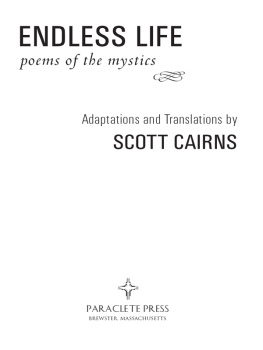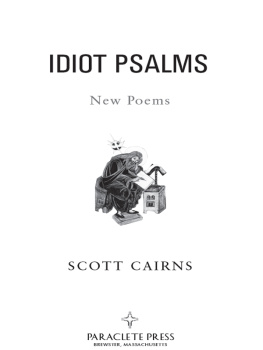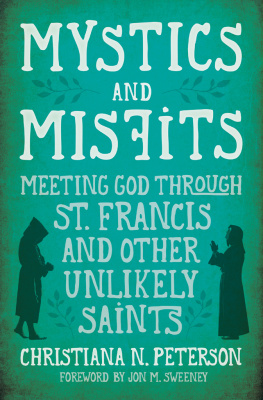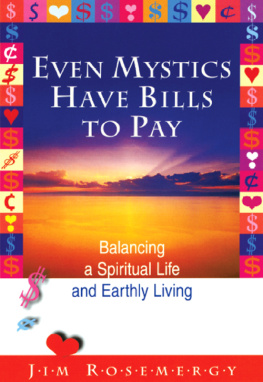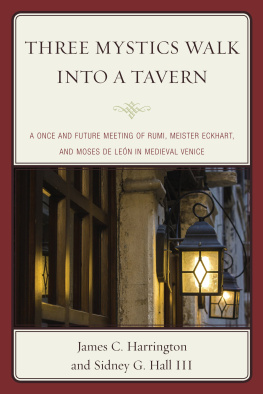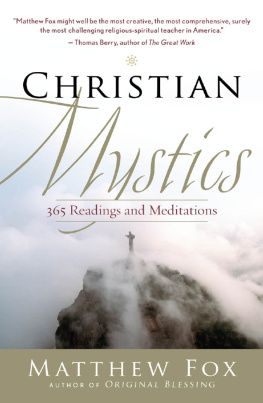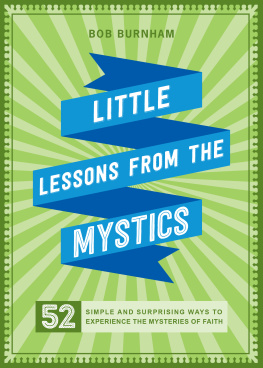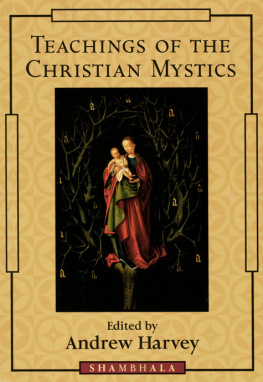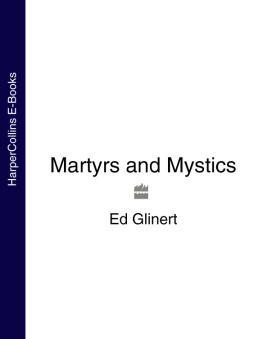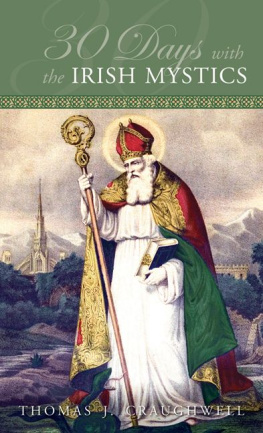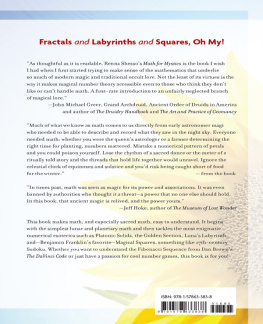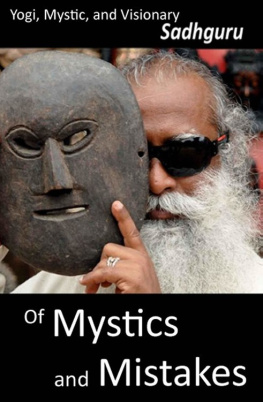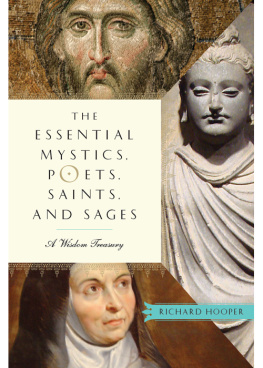Scott Cairns - Endless Life: Poems of the Mystics
Here you can read online Scott Cairns - Endless Life: Poems of the Mystics full text of the book (entire story) in english for free. Download pdf and epub, get meaning, cover and reviews about this ebook. year: 2014, publisher: Paraclete Press, genre: Religion. Description of the work, (preface) as well as reviews are available. Best literature library LitArk.com created for fans of good reading and offers a wide selection of genres:
Romance novel
Science fiction
Adventure
Detective
Science
History
Home and family
Prose
Art
Politics
Computer
Non-fiction
Religion
Business
Children
Humor
Choose a favorite category and find really read worthwhile books. Enjoy immersion in the world of imagination, feel the emotions of the characters or learn something new for yourself, make an fascinating discovery.
- Book:Endless Life: Poems of the Mystics
- Author:
- Publisher:Paraclete Press
- Genre:
- Year:2014
- Rating:4 / 5
- Favourites:Add to favourites
- Your mark:
- 80
- 1
- 2
- 3
- 4
- 5
Endless Life: Poems of the Mystics: summary, description and annotation
We offer to read an annotation, description, summary or preface (depends on what the author of the book "Endless Life: Poems of the Mystics" wrote himself). If you haven't found the necessary information about the book — write in the comments, we will try to find it.
First published in hardcover as Loves Immensity, this powerful book of selections from the mystics East and West, rendered into poetry, is now available in paperback for the first time.
Endless Life: Poems of the Mystics — read online for free the complete book (whole text) full work
Below is the text of the book, divided by pages. System saving the place of the last page read, allows you to conveniently read the book "Endless Life: Poems of the Mystics" online for free, without having to search again every time where you left off. Put a bookmark, and you can go to the page where you finished reading at any time.
Font size:
Interval:
Bookmark:
 ENDLESS LIFEpoems of the mystics
ENDLESS LIFEpoems of the mystics ENDLESS LIFEpoems of the mystics
ENDLESS LIFEpoems of the mystics Adaptations and Translations by SCOTT CAIRNS
Adaptations and Translations by SCOTT CAIRNS 2014 First Printing This Edition Endless Life: Poems of the Mystics Copyright 2007 by Scott Cairns ISBN: 978-1-55725-520-2 Originally published in hardcover in 2007 as Loves Immensity: Mystics on the Endless Life The Paraclete Press name and logo (dove on cross) are trademarks of Paraclete Press, Inc. The Library of Congress has catalogued the hardcover edition as follows: Cairns, Scott. Loves immensity : mystics on the endless life / adaptations and translations by Scott Cairns. p. cm. Title. Title.
2014 First Printing This Edition Endless Life: Poems of the Mystics Copyright 2007 by Scott Cairns ISBN: 978-1-55725-520-2 Originally published in hardcover in 2007 as Loves Immensity: Mystics on the Endless Life The Paraclete Press name and logo (dove on cross) are trademarks of Paraclete Press, Inc. The Library of Congress has catalogued the hardcover edition as follows: Cairns, Scott. Loves immensity : mystics on the endless life / adaptations and translations by Scott Cairns. p. cm. Title. Title.
PS3553.A3943L68 2007
| 811'.54dc22 | 2007005036 |
It is, after all, only relatively recently that the terms tradition and Scripture have been mistaken for separate, and perhaps even antagonistic authorities. It is good to note that even Martin Lutherthe father of our cranky phrase sola scripturawas himself utterly well-equipped with and assisted by a rich and enriching communion with the tradition expressed by the fathers and mothers of the Church. Having thoroughly ingested that tradition, he was, perhaps, in a unique position to say he would thereafter proceed by Scripture alone. We and our interpretations, on the other hand, might fare better with a little company. DichotomiesIm thinkingare probably not always false, but they are certainly always fictive. A dichotomy becomes false and misleading only when we imagine it to be more than the tool that it is: a way to talk about two parts of a whole.
We generally suffer from taking too seriously the distinctions between, say, faith and works, body and spirit, perhaps even life and death, this world and the next. In our current spiritual pinchsmarting between tradition and Scriptureit is good to remember (and to point out to our fellow travelers) that our Scriptures were composed by and, later, determined by many of those same saintly characters we refer to collectively as the tradition. Not to put too fine a point on it: the tradition precededand thereafter equipped us withthe Scriptures. Jewish readers and the more liturgically canny among Christian readers wont apprehend much of a conflict here, nor much of a surprise. They generally know that the Hebrew Bible is itself comprised of both Scripture and tradition, each speaking to the other in an endlessly provocative, continuously generative conversation. Most notably, the Torahour Scripture properis understood to have been, even in its initial transmission by God to Moses, attended by an oral accompaniment, which has continued as an attendant tradition.
In an age when so many competing ecclesiastical enterprisesthe small, the large, the enormousare busily chipping out endless lines of new and improved wheelsnone of which seem to roll quite so roundly as the originalwe would do well to gear up with our thus-far-squandered inheritance before we take to the road.  This book offers some of that tradition, and its purpose is to make availablein what I hope is a pleasing formsome of the spiritual guidance offered by the mothers and fathers who have walked this particular Way before us. Their words have been rendered here in verse, andone praysin poetry as well. It is safe to say that the originals were all poetry, though they were not all verse. I have re-translated where I both could and felt that I should; I have adapted virtually everywhere else, hoping to press a range of existingand what I took to be insufficiently suggestivetranslations into more generous terms, whose evocative figurations might yet come into play, yielding more rather than less. There is one word, even so, that I have decided for the most part not to translate at all, hoping that we all might acquire a renewed sense of the word itself, and hoping we might dodge the diminishments of its uniformly unsatisfactory translations.
This book offers some of that tradition, and its purpose is to make availablein what I hope is a pleasing formsome of the spiritual guidance offered by the mothers and fathers who have walked this particular Way before us. Their words have been rendered here in verse, andone praysin poetry as well. It is safe to say that the originals were all poetry, though they were not all verse. I have re-translated where I both could and felt that I should; I have adapted virtually everywhere else, hoping to press a range of existingand what I took to be insufficiently suggestivetranslations into more generous terms, whose evocative figurations might yet come into play, yielding more rather than less. There is one word, even so, that I have decided for the most part not to translate at all, hoping that we all might acquire a renewed sense of the word itself, and hoping we might dodge the diminishments of its uniformly unsatisfactory translations.
This word is nous. Noetic prayer is the heart of our matter; if it is acquired and sustained, it becomes the means by which we apprehend Gods presence and His will. Nous is a tasty noun from which the adjective noetic springsa word found throughout the Greek New Testament and throughout the writings of the fathers and mothers of the Church. In translation, its import as, say, the intellective aptitude of the heartmost profoundly, and where the human person is mystically united to others and to God. I have written elsewhere that an individual does not a person make. Personhoodif the Image of God is relevant hereis revealed in relationship, and the nous is the faculty that enables and performs just such relationship.
It can be soiled, both obscured and obscuring, orif reconstituted and cleansed by Gods graceit can be the faculty by which His presence and will are most clearly known. Even so, the word is most often rendered as mind or reason or intellect, and these curious choices have become complicit in one of our unfortunate dichotomies, that of the human person into a two-part invention: a relatively deplorable vehicle (the body) and its somewhat more laudable and worthy passenger (the soul or spirit). Along with an insidious (and dusty) doctrine of secret, saving knowledge given to those whose spirits have transcended bodily bondage, this very dichotomy is, frankly, such a dire misunderstanding as to constitute its own species of the Gnostic heresy. You might recognize its legacy as an ongoing, body-bashing error among a good bit of the Western Church, both high and low. A rediscovery of
Next pageFont size:
Interval:
Bookmark:
Similar books «Endless Life: Poems of the Mystics»
Look at similar books to Endless Life: Poems of the Mystics. We have selected literature similar in name and meaning in the hope of providing readers with more options to find new, interesting, not yet read works.
Discussion, reviews of the book Endless Life: Poems of the Mystics and just readers' own opinions. Leave your comments, write what you think about the work, its meaning or the main characters. Specify what exactly you liked and what you didn't like, and why you think so.

